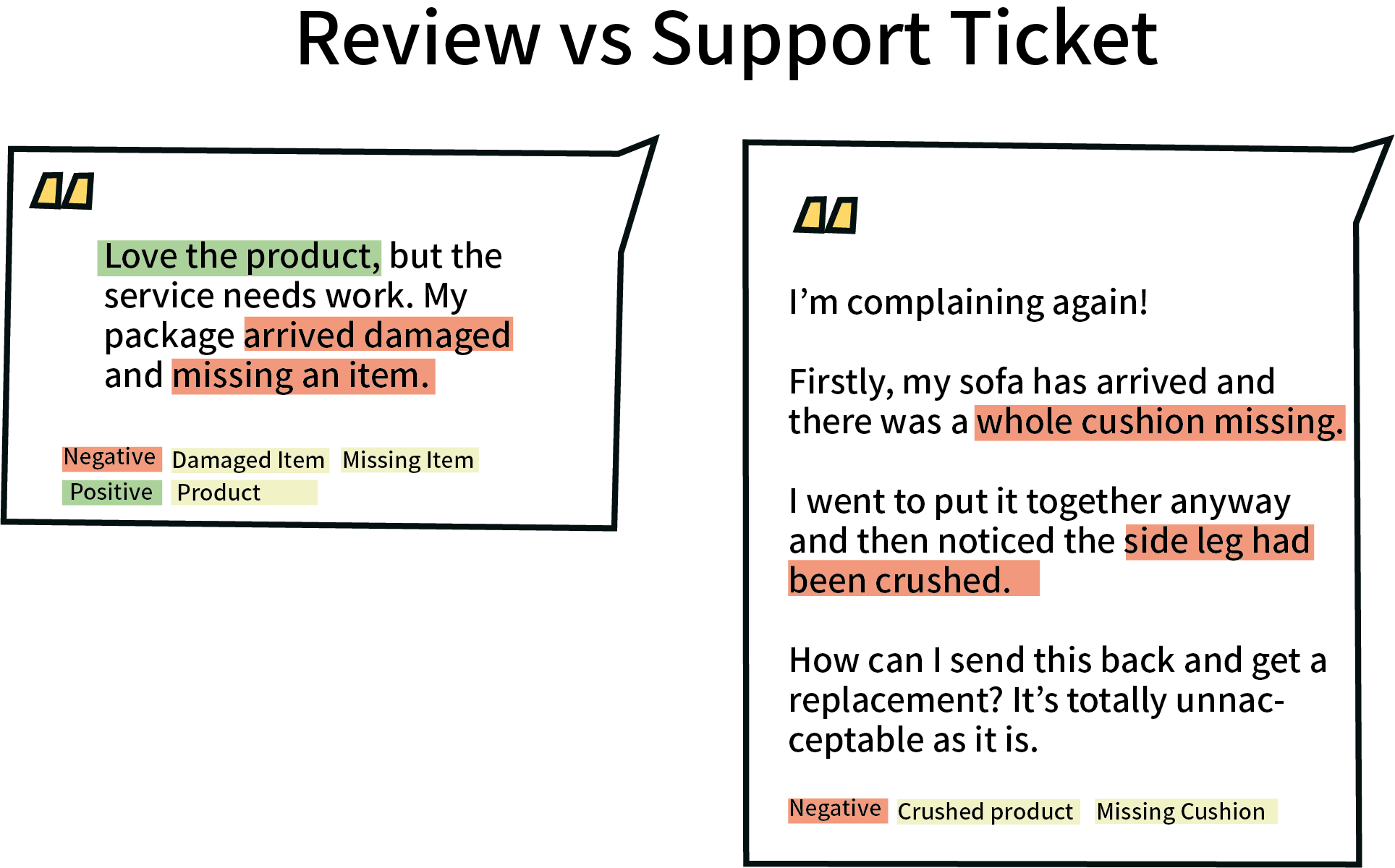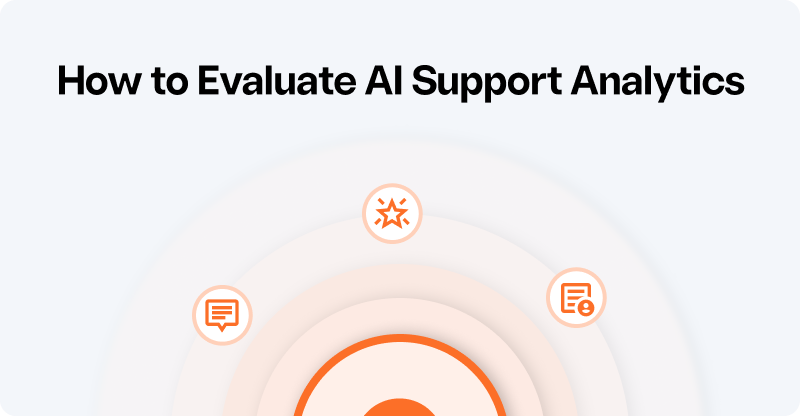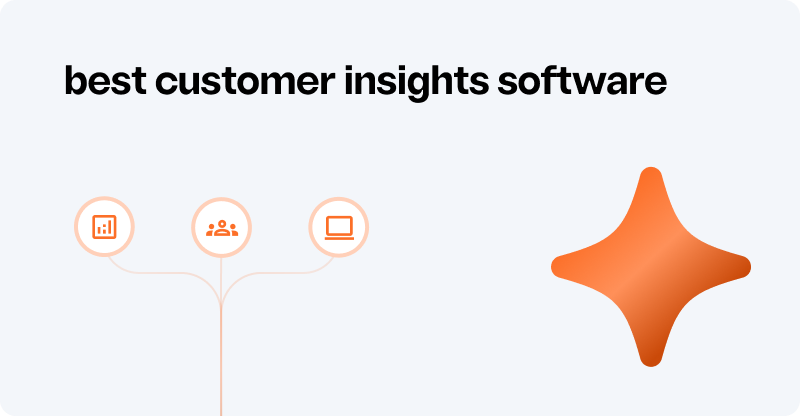In the last 10-20 years, there's been a 5x rise in the interest of 'customer experience'.

In 2017, 81% of companies said that within two years they’ll be competing completely on the basis of customer experience.
Yet there’s one large piece of the puzzle that companies continue to struggle with: measuring and getting to the root cause of customer friction points.
NPS and customer reviews are now part of the “customer-centric”-"customer feedback" playbook at almost every company.
But, everyone’s unhappy with these measures of customer voice. Since I joined the industry, I haven't heard one good word about NPS.
No one trusts it. The answers are too generic, the score doesn't have a large impact across the organisation, and the consumer is now inundated with survey-fill requests by well-meaning brands.
The most dangerous thing for business strategy is that they are all laced with bias.
Increasingly, companies across industries approached us because they were struggling to understand their NPS, labouring to move it, or unable to align it with data on customer behaviour and wondering why—Christina Stahlkopf
Whether it’s survey fatigue, selection bias, human error or just a misunderstanding of the metrics, these methods of measuring customer experience are elusive at best.
Further reading: Why customer feedback surveys suck.
Why collect free text survey data if you aren't going to use it?
If you’ve already realised the current method of doing things is lacking something, you may have looked for a solution.
You may have already tried collecting rich qualitative ‘free text’ and hit upon another problem: it’s time-consuming to analyse free-text form fields.
Most companies we work with had 50–100,000 free text answers from their NPS survey efforts. (For example, Schuh in this case study)
There are a few ways of tackling this problem properly, but the usual methods are:
1) spend A LOT of manual hours sifting through it.
2) take a small sample and to hope it reflects the wider population.
Then organisations run into another problem…by the time analytics has finished, you wonder if you can really trust it.
Is it out of date? Did the three analysts who did the analysis interpret things differently?
What a waste of your time and your customer's.
Related read: Read our customer journey mapping guide here.
Most customer feedback programmes don't leverage customer support insights
Customer support conversations (taking place on live chat, social media chat, emails, calls) are by nature informative and unbiased.
Many companies have thousands of customer conversations a day, each ticket containing information on the friction between your product, operations, partners, and the customer.
But, despite support tickets solving the actionability problem, few invest in the software and skill needed to uncover and leverage insight from them.
Customer support conversations are your competitive advantage, but why?
In a recent interview with customer service consultant, Alice Godfrey, we got this topic in a nutshell.
"Customer support is the only pure route to what's going on with the customer."
Most companies are currently sitting on a wealth of real-time and historical live chat logs, email conversations and social media chats.
Every single one is a pure source of insight into what’s driving customer friction.
If unlocked at scale, support ticket insights empower both short and long-term decision making.
In the short-term, companies can be proactive. Understanding issues facing a group of customers and preventing them from happening to the rest (like a discount code failing to work).
Whereas in the long-term, companies can look at recurring trends and make product changes that boost conversion rates and tackle churn.
As with all data-informed decision-making, big data is where insight is most powerful.
Analysing one conversation is unhelpful.
But knowing the topic of hundreds (or thousands) of customer support tickets every day, and sharing those insights widely, is a powerful way to encourage marketing, product and operations to be customer-centric.
Volume of 'reason for contact' data can help prioritise product roadmaps, and connecting topics to 'refund' or 'cancellations' can help identify issues severely impacting the bottom line.
Analytics of customer support conversations is undoubtedly the future of customer-centric companies.
How are support ticket insights any different?
First and foremost, this customer feedback channel unlocks granularity because the customer's incentives are now aligned with your own: speed of resolution.
A customer in this environment provides detail. Detail into what went wrong and the specifics that will allow a customer support agent to make a decision quickly.
As the below example shows, in a review a customer will tend to be unspecific about a complaint. But in a review, they'll go into detail about the problem.

Beyond granularity, support tickets also trump other customer feedback channels in these ways:
• Support tickets are collected without direct customer knowledge = no survey fatigue, no selection bias, and no getting bored five questions in.
• Feedback is collected in real-time = insights are up-to-date and allow you to be proactive in solving them. If 500 customers in one day complain about a discount code not working, your team can quickly change that for future customers.
• Customers complain at the time when they have the problem = no weak data as a result of human memory.
• Feedback isn't limited by the questions asked, customers can detail their pain point freely = rich data.
• Feedback is all qualitative = no pointless measure of CX that doesn't lead to actionable change.
.png)
Why are customer support conversations currently an underused channel?
Customer support conversations are often forgotten because companies are set in their ways.
Surveys broke through a while back and have been integrated into company and top executive's performance measures. But understandably, it's hard to change the infrastructure underpinning a global enterprise.
However, for most companies it's just too hard: companies have simply not been able to analyse their customer support data at the speed, scale and detail required.
The benefits are also its downfall. The large volumes of live chats and emails a company receives every day takes a lot of manual effort to sift through each week.
Or it takes a technical team months of time to get a system set up—which, even then, has flaws and often misses frequently talked about topics.
Companies like Zendesk have helped a little.
However, the data tagging is still mostly manual and therefore it's mostly subjective.
This means Zendesk users still have an actionability problem.
The result we've seen is that:
1/ Extra admin work takes agent time, which takes them away from delivering excellent customer experiences;
2/ Each company chooses a small set of tags. Every conversation is then forced into this narrow set of self-chosen tags leaving a lot of the specifics unsaid;
3/ The results are subjective. Each agent interprets the meaning of the conversations in different ways and so tags differently.
This method is a waste of such a rich data source.
Customer support conversations have, as a result, become a challenge unchallenged by customer experience and customer support leads.
Why AI-powered support ticket analytics is the future
We've made this our mission at SentiSum.
We use natural language processing technology to tackle qualitative data at high volumes.
We build every company a custom AI model so every few minutes you'll have fresh insights from every support ticket, survey and review.
Using our platform, you can get more out of your existing feedback channels AND include customer support tickets.
You could even say goodbye to surveys all together. 🤞
One of the major challenges when it comes to a support ticket analysis in large organisations is the accessibility of insights.
As our recent podcast guest, Annette Franz, notes, "when you have 90,000 employees you can no longer tap somebody on the shoulder and say, 'hey, guess what this customer said.'"
That's why it's transformative to create a single source of truth that anyone can check in with.
Heading 1
Heading 2
Heading 3
Heading 4
Heading 5
Heading 6
Lorem ipsum dolor sit amet, consectetur adipiscing elit, sed do eiusmod tempor incididunt ut labore et dolore magna aliqua. Ut enim ad minim veniam, quis nostrud exercitation ullamco laboris nisi ut aliquip ex ea commodo consequat. Duis aute irure dolor in reprehenderit in voluptate velit esse cillum dolore eu fugiat nulla pariatur.
Block quote
Ordered list
- Item 1
- Item 2
- Item 3
Unordered list
- Item A
- Item B
- Item C
Bold text
Emphasis
Superscript
Subscript

.webp)









.webp)
.svg)











